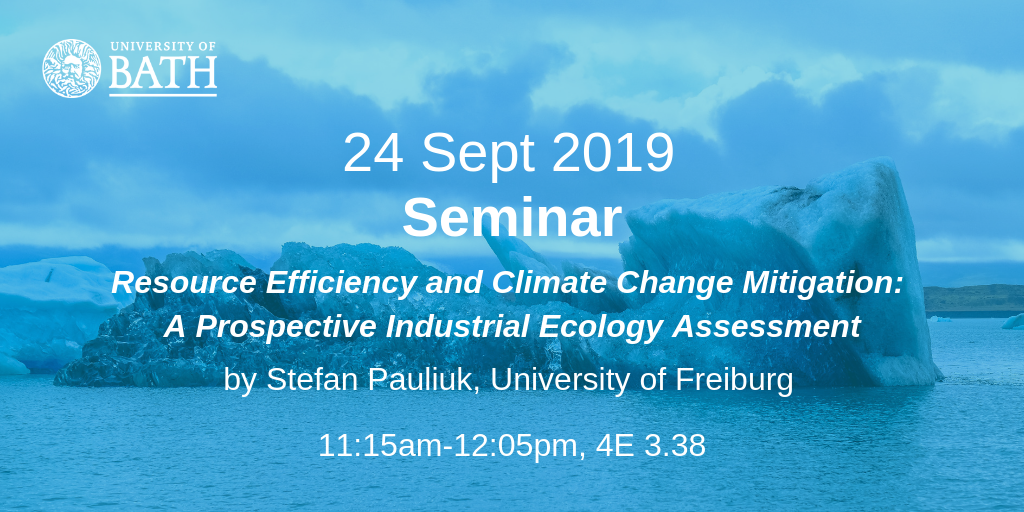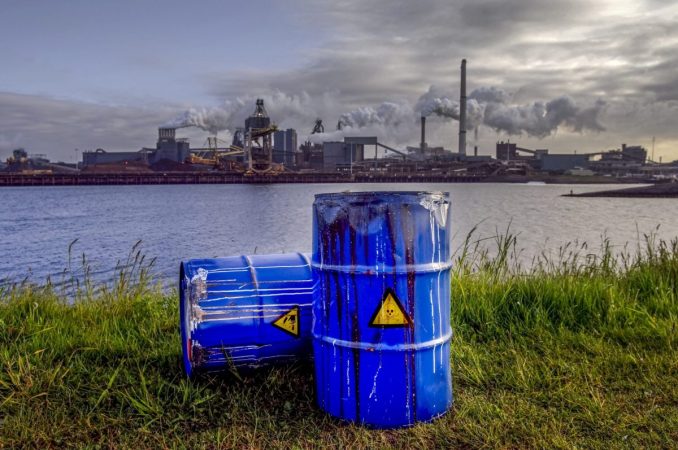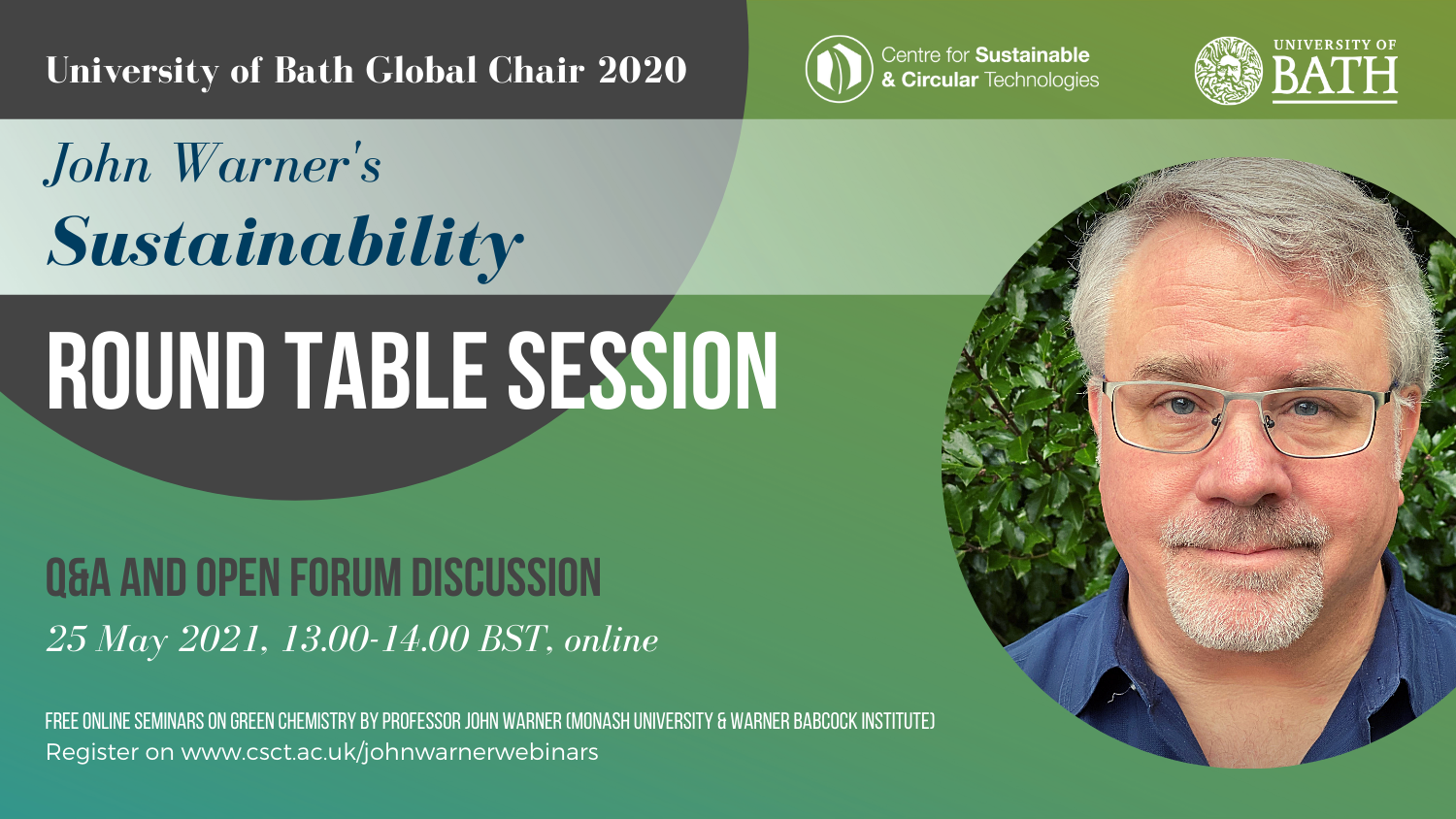
Seminar: Resource Efficiency and Climate Change Mitigation – A Prospective Industrial Ecology Assessment
Synopsis:
Energy efficiency is a prominent and well-established emissions mitigation strategy, but the same cannot be said for material efficiency, which includes measures such as product light-weighting, lifetime extension, more intense use, and different value retention services such as remanufacturing and reuse. Industrial ecology research has shown that the energy, material, and emissions savings potential of material efficiency can be substantial. In this talk, I report first estimates of the material efficiency potential of the G7 countries, China, and India, as well as the link between material efficiency and climate change mitigation.
The time span of the assessment is 2015-2050, and it covers material efficiency in passenger vehicles and residential buildings. The climate-relevant bulk materials concrete, steel, timber, aluminium, and plastics are included.
Next to estimating the potential benefits of material efficiency regarding carbon emissions reduction, I also present trade-offs between strategies, for example, that a lifetime extension of vehicles slows down the uptake of new drive technologies and thus leads to increased emissions in some vehicle technology and electricity supply scenarios.
About the speaker:
Stefan Pauliuk is an expert for method development to assess sustainable development strategies. His work includes supply chain analysis, scenario modelling for sustainable material futures, and indicator development for resource efficiency and circular economy strategies. Together with colleagues, he estimated current in-use stocks of steel and developed scenarios for material efficiency in the future steel cycle that show the substantial greenhouse gas emissions mitigation potential of material efficiency. He is Assistant Professor for Sustainable Material and Energy Flow Management at the Faculty for Environment and Natural Resources, University of Freiburg, Germany, where he leads the research group “Industrial Ecology Freiburg”.
This seminar is free to attend and requires no previous registration.







